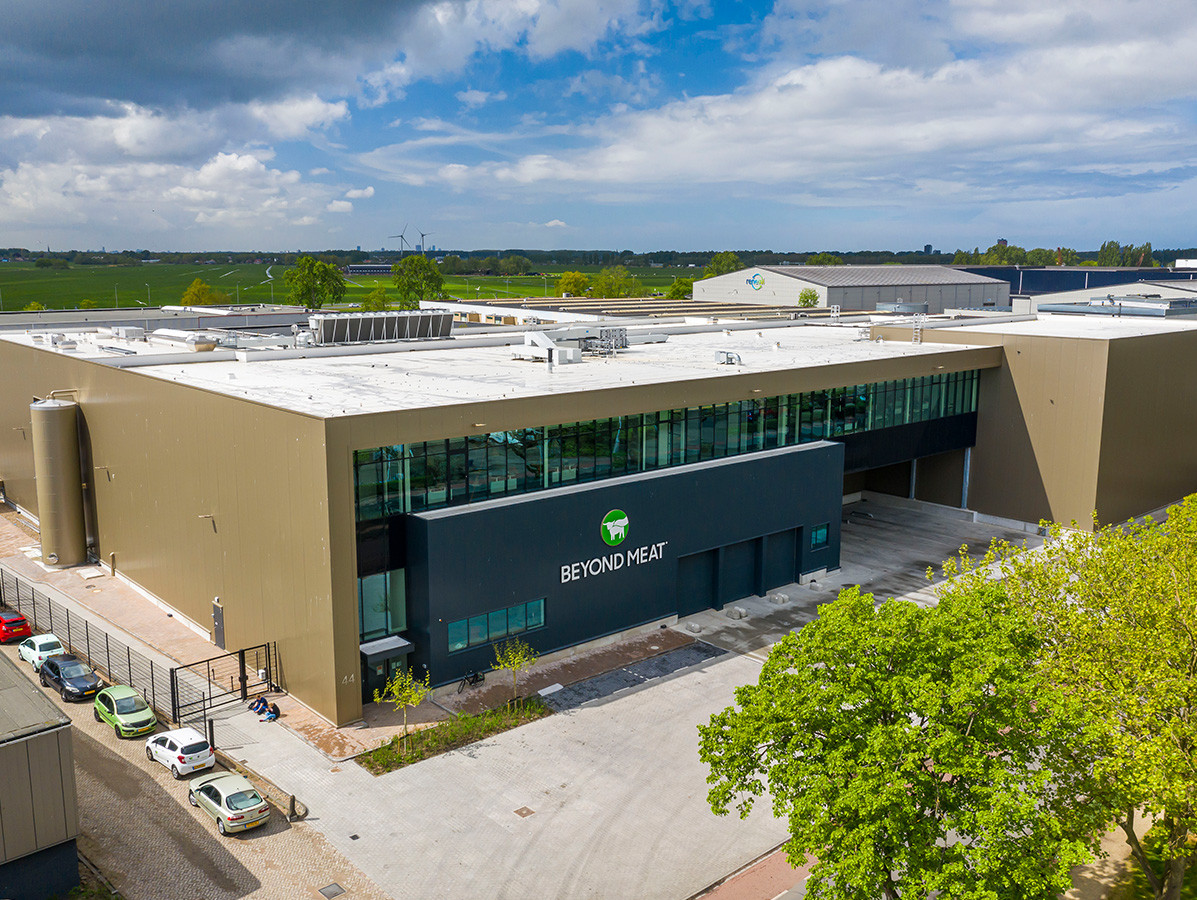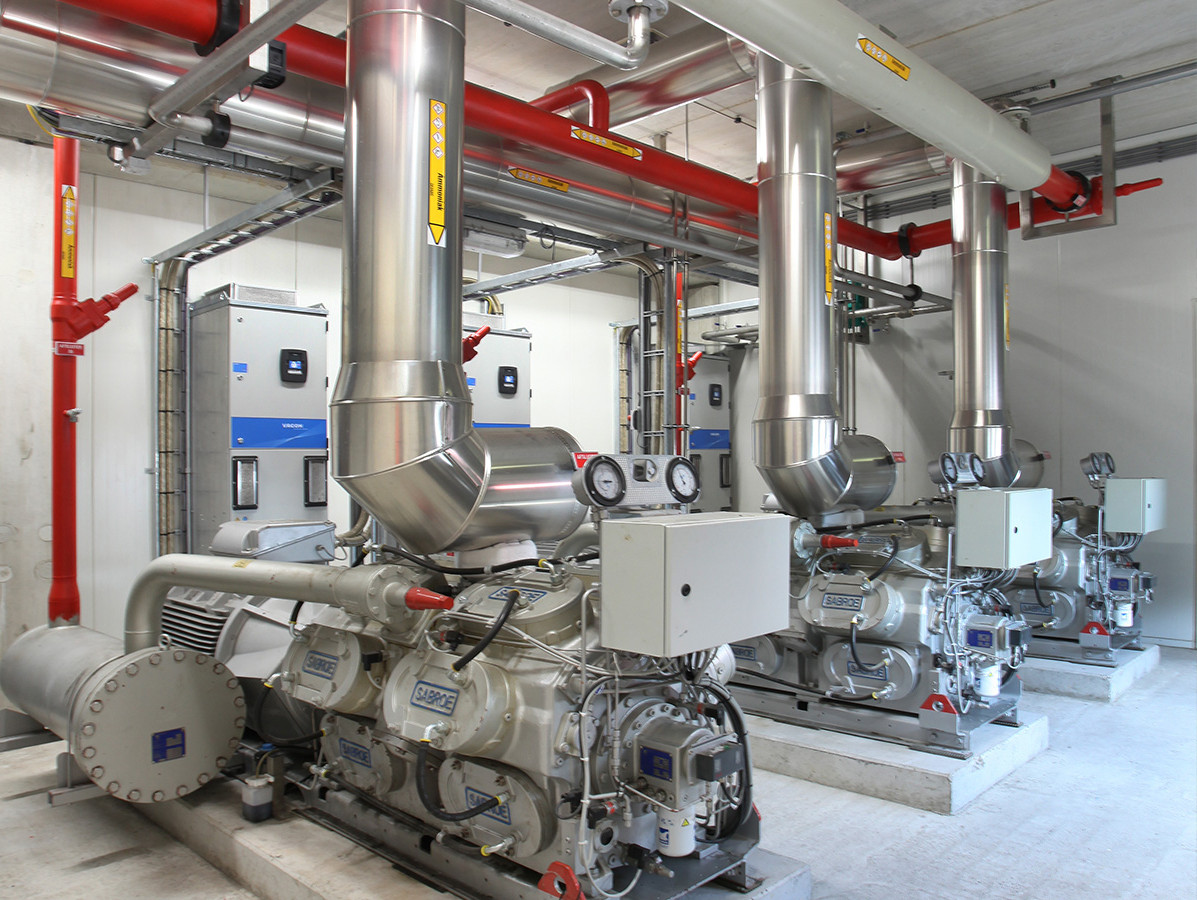
streamlines business processes with software solutions such as the well-known FOBIS®. But there is more. With innovative new construction and remodelling, the group acts as a one-stop shop for any company that wants to be more efficient, sustainable and ready for the future.
"Never before has food been produced as safely as it is today. The industry's efforts to achieve this are often supported by automation solutions. They streamline business processes, provide insight, certainty and a strong basis on which to make decisions."
Speaking is Paul Nass. He is RBK Group head of sales and CEO of RBK Automation GmbH in Kleve, Germany, which, like the Deventer branch, belongs to the RBK Group. The supplier has been supplying efficiency-enhancing solutions to the food industry for over 40 years, including companies in sectors such as Meat as well as Bread and Pastry. For instance, the company developed the well-known modular ERP system FOBIS® especially for food companies. "We are a knowledge-driven IT company with automation as an important core activity. Yet our services are broader and consist of an integral approach."
RBK acts as a one-stop-shop for any food company that is growing or otherwise changing. The Food Automation division is an important pillar, but the Food Projects business unit is just as important. This includes its own engineering firm, architectural firm and environmental department. Together, they ensure that through new construction or renovation, both the business environment and the processes within it are optimally designed.
"Everything starts with listening to the customer. In the case of a new construction or remodelling, our experts examine the current business processes, the current and future logistics flows, where the customer wants to be in three, five or ten years' time, and carry out feasibility studies. Gradually, a master plan emerges with the most efficient layout of lines. Only then is it the architecture's turn and construction or remodelling is carried out with those lines as a starting point. On many factory floors, goods make too many metres. RBK is committed to optimising logistics flows," says Paul.
The approach includes all facets on the factory floor. Also cooling, for example, which RBK has traditionally been strong in. The environmental branch develops the most optimal working method with regard to issues such as odour, noise and waste water, as well as permit applications.

As a regular partner at BCS Coldstore & Logistics, RBK organised the installation of the energy-efficient refrigeration system in Amsterdam
From its Automation business unit, RBK provides software solutions for every level; from ERP to MES and SCADA/PLC. No company can escape a certain level of automation. Yet, according to Paul, there is room for improvement in many places. "Without a conclusive and automated stock registration, raw materials are more likely to go past their expiry date. More mistakes are also made if the registration of quantities and types of raw materials in a recipe is not adequately automated. Working more sustainably starts with streamlining these kinds of processes. With the right software, complete and real-time insight into every part of the chain is possible, from goods receipt to dispatch. This creates full traceability and process certainty. And: peace of mind. Moreover, it flawlessly exposes the areas where cost savings can be made."
Saving raw materials and energy is perhaps more relevant and urgent than ever nowadays. Automation not only makes the flow of goods foolproof, it also gives companies an overview of their energy consumption. And that can be managed.
"For instance, our FOPRO SCADA/PLC software contributes to serious energy savings. At a customer of ours in the meat industry energy savings of more than 30 per cent were achieved thanks to FOPRO's optimising controls. It is part of an integrated approach. For this company, RBK realised the new building according to the highest level of the sustainability label BREEAM-NL and constructed it without fossil energy carriers. Roof and walls are made of material with high insulation values so that no energy is lost. And the use of LED lighting alone saves 650 tonnes of CO2 annually. The electricity the company generates itself via solar panels is first used for cooling. As soon as production starts, automatic control ensures that all self-generated electricity goes to production. With its own residual heat, it heats the offices and cleaning water, among other things," Paul sums up.
RBK also assists companies with the mandatory energy audit EED that some of the companies have to deal with every four years. It fits in with the integral service according to Paul. "With our equipment, all business processes can be streamlined. We build on a longer relationship and like to take the customer with us in our broad view of the future. And in terms of ways to save energy: We know how."
Caption main photo: In cooperation with RBK Food Projects, a brand-new building was constructed for The New Plant/Zandbergen that is ahead of its time - certainly in terms of sustainability
Source: Vakblad Voedingsindustrie 2022